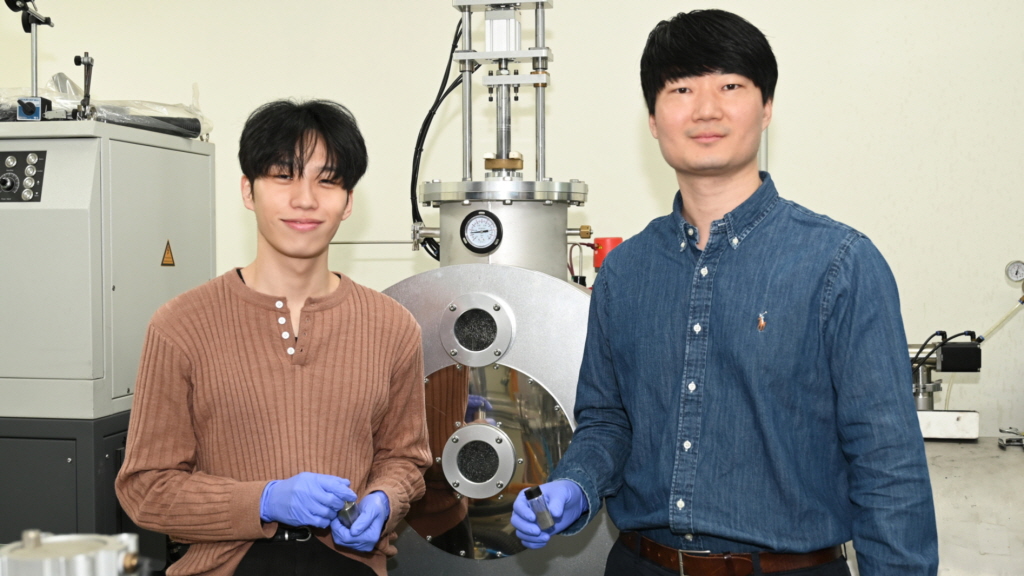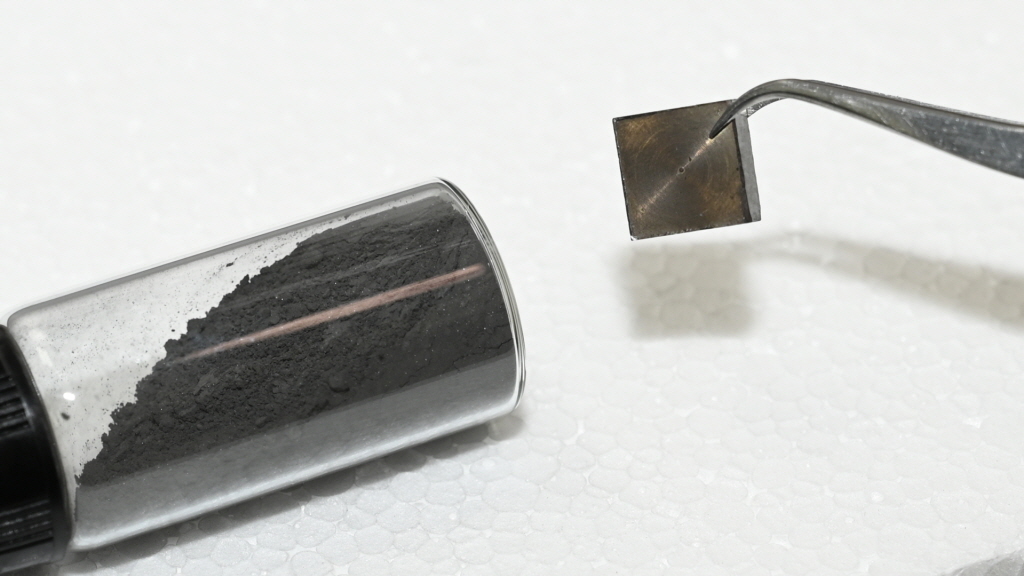한국재료연구원(KIMS) 나노재료연구본부 박지훈, 김종우 연구팀이 세계 최고 수준의 강력한 성능을 발휘하는 차세대 비희토류 Mn-Bi(망간-비스무스) 영구자석 제조 기술을 개발하며, 향후 희토류 자석에 대한 의존도를 줄이고, 산업에서 높은 경제적 가치를 창출할 것으로 기대가 모아진다.

▲연구에 참여한 송영운 학생연구원(左), 연구책임자인 박지훈 선임연구원(右)
재료연구원, 비희토류 영구자석 제조 기술 개발
세계 최초로 비희토류 영구자석을 만들 수 있는 기술이 국내 연구진에 의해 개발돼 향후 희토류 자석에 대한 의존도를 줄이고, 산업에서 높은 경제적 가치를 창출할 것으로 기대가 모아진다.
한국재료연구원(KIMS) 나노재료연구본부 박지훈, 김종우 연구팀이 세계 최고 수준의 강력한 성능을 발휘하는 차세대 비희토류 Mn-Bi(망간-비스무스) 영구자석 제조 기술을 개발했다.
연구팀은 해당 기술을 자석 제조기업 ㈜노바텍에 기술 이전을 진행 중이며, 이를 통해 세계 최초로 비희토류 기반 Mn-Bi 자석의 상용화가 실현될 가능성을 확보했다.
현재 영구자석 산업은 Nd(네오디뮴)과 같은 희토류 원소가 주재료로 사용된다.
반면에 희토류의 공급이 중국의 정책 변화에 따라 불안정하고 가격 변동성이 크기 때문에 희토류를 대체할 수 있는 고성능 기술 개발이 절실히 요구돼 왔다.
이에 비희토류 Mn-Bi는 대체 소재로 주목받아 왔으나, 소결 공정에서 산화 및 상분해로 인해 순도를 유지하기 어려워 상용화에 한계를 겪었다.
연구팀은 이러한 한계를 해결하기 위해 저온에서 고순도의 단결정 Mn-Bi 분말을 개발하고, 밀도를 95% 이상 높이는 새로운 저온 소결 기술을 설계했다.
이를 통해 최대 자기에너지적 10.5MGOe를 안정적으로 구현하며 세계 최고 수준임을 입증했다.
또한 소결 후에도 자성이 유지되고 산화 현상 없이 대량 생산이 가능해 상용화 수준의 품질을 확보했다.
이 기술은 전기차 모터, 발전기, 반도체 부품 등 다양한 산업에 폭넓게 적용될 수 있다.
특히 기존의 페라이트 자석을 사용하는 전동기를 더 작고 효율적으로 제작할 수 있어 실생활과 산업에서 높은 경제적 가치를 창출할 것으로 기대된다.
박지훈 연구책임자는 “이번 연구를 통해 한국이 세계 최초로 Mn-Bi 영구자석의 상용화를 실현할 가능성을 확보했다”며 “이 기술이 성공적으로 상용화된다면 희토류 자석에 대한 의존도를 줄이고, 국내 기업이 글로벌 시장에서 경쟁력을 갖추는 데 큰 도움이 될 것”이라고 강조했다.

